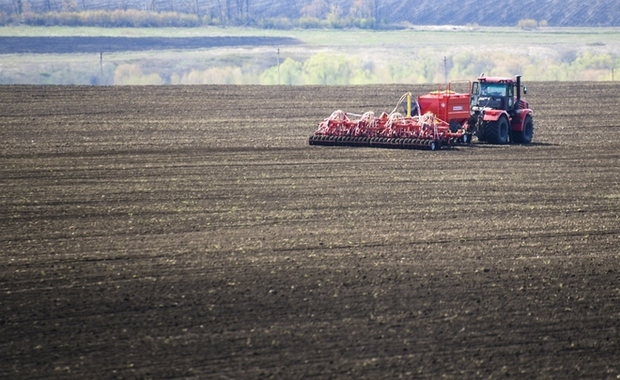Russian wheat and sunflower rise in price due to cold weather
This year's abnormally cold spring can hamper Russia's agricultural success: spring grain sowing is currently running slower than in 2016. The Ministry of Agriculture has already downgraded its grain crop forecast for 2017. Amid a growing demand from Egypt and the renewal of purchases by Turkey, a poor harvest can seriously affect prices.
Concerns over this summer's wheat crops in Russia and Ukraine have made export prices rise for a third consecutive week, reports Hellenic Shipping News Worldwide. According to an updated forecast by the Russian Ministry of Agriculture, Russia's 2017 grain crop could amount to 100-105 million tonnes instead of previously expected 110 million tonnes. The unfavourable weather conditions are the reason why spring grain sowing is currently running 1,1 million hectares slower compared to 2016. By the beginning of June, farmers had sown spring grain only on 93% of the planned area, reported the ministry.
Meanwhile, SovEcon agriculture consulting agency considers that there is no need to significantly downgrade its grain crop forecast so far as a warmer period is soon expected in Russia's most European regions. In May, the agency estimated Russia's future grain crop at 115,3 million tonnes, including 70,4 million tonnes of wheat. However, SovEcon updated its price forecast for the new crop having pegged prices for July-August delivery at $173-$177 per tonne, up $1,50 from its previous estimate. The agency's counterpart IKAR put prices at $176, up $2 from the previous week. Current export prices for Russian wheat with 12,5% protein content rose by $1 last week and reached $187,50 per tonne, while domestic prices for third-class wheat slightly decreased to $160,5 per tonne excluding delivery costs.

An increased demand from Egypt is also impacting on the price. Last week, the country announced that it would buy a big amount of Russian and Romanian wheat. Another Russian partner, Turkey, is expected to restart purchases after lifting a short-lived restriction on Russian wheat as President Vladimir Putin eased bans on Turkish agricultural import and employment of Turkish workers in Russia. This year, Russia has exported 33,2 million tonnes of grain, including 25,6 million tonnes of wheat, which is 1,7% more than in the corresponding period of 2016.
Other Russian agricultural goods, sunflower seed and sunflower oil, have also added in price both in domestic and export markets. SovEcon estimates the 2017 oilseed crop in Russia at 16,2 million tonnes, while, in 2016, it was 500,000 tonnes higher. At the same time, sunseed exports rose threefold in October-April compared with the same period in the previous year. Local sunflower oil producers are anxious about the rising export and have asked the government to impose additional measures to limit the exports, said the agency.